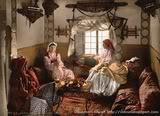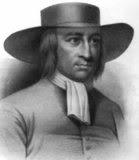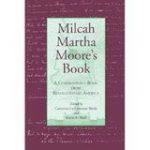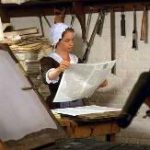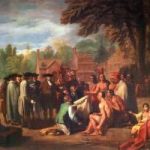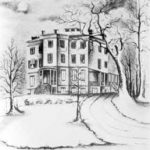Philadelphia Poet (1727-1817)
The American Revolution forced colonists to choose between England and the King, colonial homes and families, and even religious convictions. To support the war was to refute the King, to oppose the war was to deny one’s homeland. For Pennsylvania Quakers (members of the Society of Friends), those decisions were further complicated by their belief in nonviolence and their desire to protect and support the colony founded by William Penn.
While Quakers at first supported patriotic resistance to the British, they soon grew uncomfortable with the radical nature of the movement. However, Quakers in Pennsylvania and elsewhere joined most colonists in opposing the British taxation policies of the 1760s and 1770s.
Women protested the Stamp Act of 1765, organized consumer boycotts of British goods, and engaged in debates about full-fledged rebellion. These were the Daughters of Liberty, who “For the Sake of Freedom’s Name / (Since British Wisdom scorns repealing) / Come sacrifice to Patriot Fame,” as Philadelphia’s Hannah Griffitts celebrated their resistance in a series of poems written between 1768 and 1775.
Hannah Griffitts’ poem, The Female Patriots, was written in 1768, and refers to American protests against British measures including the Sugar Act (1765) and Townsend Duties (1767).
The Female Patriots
Since the Men from a Party, on fear of a Frown,
Are kept by a Sugar-Plumb, quietly down.
Supinely asleep, & deprived of their Sight
Are stripped of their Freedom, and robbed of their Right.
If the Sons (so degenerate) the Blessing despise,
Let the Daughters of Liberty, nobly arise,
And tho’ we’ve no Voice, but a negative here.
The use of the Taxables, let us forebear,
(Then Merchants import till yr. Stores are all full
May the Buyers be few & yr. Traffic be dull.)
Stand firmly resolved & bid Grenville [English Minister George] to see
That rather than Freedom, we’ll part with our Tea.
And well as we love the dear Draught when a dry,
As American Patriots, our Taste we deny,
Sylvania’s, gay Meadows, can richly afford,
To pamper our Fancy, or furnish our Board,
And Paper sufficient (at home) still we have,
To assure the Wise-acre, we will not sign Slave.
When this Homespun shall fail, to remonstrate our Grief
We can speak with the Tongue or scratch on a Leaf.
Refuse all their Colors, the richest of Dye,
The juice of a Berry – our Paint can supply,
To humour our Fancy – and as for our Houses,
They’ll do without painting as well as our Spouses,
While to keep out the Cold of a keen winter Morn
We can screen the Northwest, with a well polished Horn,
And trust me a Woman by honest Invention
Might give this State Doctor a Dose of Prevention.
Join mutual in this, & but small as it seems
We may Jostle a Grenville & puzzle his Schemes
But a motive more worthy our patriot Pen,
Thus acting – we point out their Duty to Men,
And should the bound Pensioners, tell us to hush
We can throw back the Satire by biding them blush.
Like many other prominent Quakers in the Middle Atlantic Colonies, Griffitts called for a negotiated settlement rather than the pursuit of armed conflict and national independence.
Hannah Griffitts deplored the situation that led to the division of her family and her society. In her writings, she anguished over the tragedies of war and the disunity that had claimed Pennsylvania. In a poem about the first major battle of the war, the Battle of Long Island, she wrote movingly of the impact of “wars devouring rage” and hoped (vainly) for a speedy resolution.
Oh! Speak contending brethren into Peace,
Bid the sweet Cherub bless our weeping Shores,
And friends again in her soft Bands unite.
The theme of resolution and reconciliation marked other of Griffitts’ wartime poems, including one in which she sympathized with the family of a fallen American soldier. The real disaster, as she saw it, was the “mean Distinctions times have made.” The Revolution, as she knew all too personally, had the potential to “break each sacred Tye, each social Band/and in affliction plunge the parent Land.”
During the war, Griffitts constantly derided what she saw as the extremism of the American position, and lashed out at Thomas Paine, calling him a “Snake beneath the Grass” whose radical message drowned out the voices of “moderate men.”
She watched as the women she had honored in her poetry took on new managerial roles in the absence of their husbands, operating farms and shops, plantations and businesses. These partisans of independence added to their domestic responsibilities the feeding, clothing, and nursing of armies.
At the same time she was not much easier on the British, often finding their behavior in Philadelphia boorish and overly militaristic. She viewed the Meschianza, an elaborate festival the British in Philadelphia arranged to honor the departing General Howe, as indicative of a “deep degeneracy of nature.”
SOURCE
The Complexity of Patriotism and Quaker Loyalism
